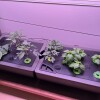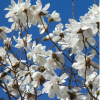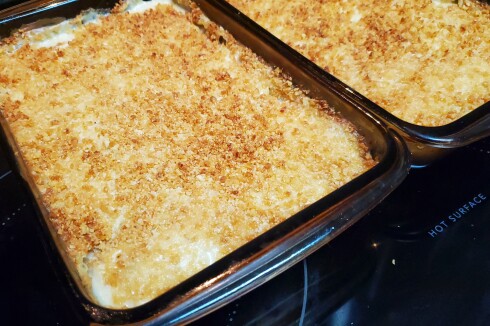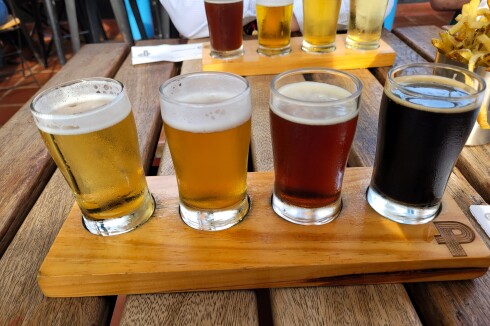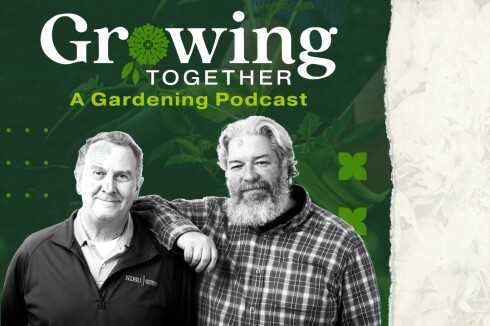Q: I listened to your podcast earlier this summer, and in one of them you mentioned a perennial salvia that was blooming better than other types, but I can’t remember the name. Can you repeat what the salvia was that you were growing? — Natalie M.
A: My favorite new perennial salvia is Blue By You. With its catchy play on words, the salvia is an All-America Award winner from 2023, which was the year I planted several groupings of them.
ADVERTISEMENT
For two years, this salvia has been an eye-catcher in our perennial garden, blooming from May through June and repeating again after the first flush of flowers is deadheaded, giving an extended season of bright purplish-blue.
The spike-shaped flowers are held above the clean, dark green foliage, for a blooming height of about 20 inches. It’s also rabbit and deer-resistant.
It’s listed as winter hardy for Zone 4, and it’s wintered well in our home yard and in the North Dakota State University display gardens. I would definitely try it in Zone 3, but add a layer of insulating mulch in the fall, such as straw, shredded wood, or leaves, or plant it in a protected microclimate location.
Blue By You has far outperformed the other perennial salvias I’ve tried, such as the commonly sold Maytime. Blue By You produces more flowers on a sturdy, vigorous plant, and the flower spikes don’t flop like some salvia cultivars.
The photo above was taken in our yard this past summer, which was Blue By You’s second season in that location.
Q: I read with interest last week’s article that featured the onions. For years, I wrestled with trying to grow big onions, and then I learned that starting with plants that you grow from seed, or buying plants will produce larger onion than sets will.
This year, I raised Ailsa Craig plants from seed and bought Super Star and Patterson onion plants from the local garden center. My dad used to harvest his onions super early, calling them green onions, and store them in a jar of water in the fridge, then set on the supper table, eaten raw. — Ken L.
ADVERTISEMENT
A: Thanks Ken, for the input. For years, I grew our onions from dry “sets,” because that was the way my mom did it when I was gardening with her as a young boy. Many decades later, a wise gardener in West Fargo showed me that starting with onion plants produces much larger onions.
Count the day lost you don’t learn something new, and for the past years, I’ve grown onions from plants. Sets can definitely work also, but plants tend to produce even bigger bulbs.
You can start your own onion plants, as Ken mentioned, or you can buy plants at most garden centers. I start our seeds in February, ordered from seed catalogs. The cultivar Ailsa Craig produces huge onions, and Patterson is a good-sized type that is known for its long storage life.
When browsing seed catalogs for onion types, you’ll notice them divided into long-day and short-day varieties. For Northern gardening, select long-day cultivars. It’s easy to remember because our summer days are long.
Q: I’ve been using insecticidal soap on some insects on our houseplants, but it doesn’t seem to be working. What am I doing wrong? — Katrina S.
A: Insecticidal soap can be quite effective, but it’s important that we know its mode of action. Insecticidal soap and neem oil are contact-only insect controls, meaning the products must come in direct contact with and cover the insects’ bodies, effectively smothering them.
Insecticidal soap and neem oil don’t have residual activity, which means that if insects are hiding under leaves or in nooks and crannies along the stems, they’ll escape being coated with the spray. That’s why thorough coverage of all plant surfaces is important, with repeat applications following label directions.
ADVERTISEMENT
On a related note, insecticidal soap is specially formulated to be plant-friendly. Home remedies using dishwashing soap can break down the natural waxy protective coating on plant leaves, so aren’t recommended.
If you have a gardening or lawn care question, email Don Kinzler, NDSU Extension-Cass County, at donald.kinzler@ndsu.edu . Questions with broad appeal may be published, so please include your name, city and state for appropriate advice.




